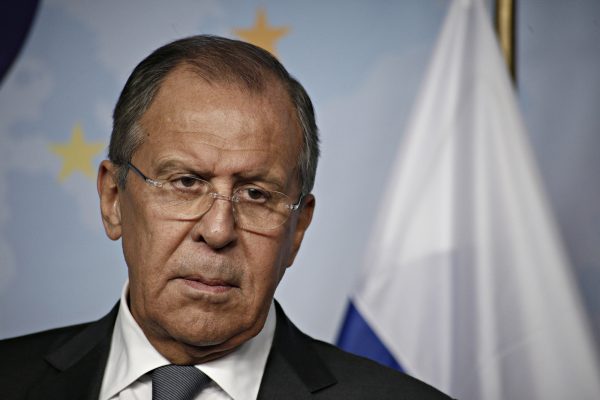
Russian Foreign Minister Sergei Lavrov is set to arrive in Hanoi today for a two-day visit to Vietnam, en route to a G-20 meeting later this week in Indonesia, in a move that is likely to court friction with Vietnam’s Western partners.
According to a Vietnamese government statement cited by Reuters, Lavrov will visit Vietnam at the invitation of Vietnamese Foreign Minister Bui Thanh Son to mark the 10th anniversary of the two nations’ “comprehensive strategic partnership.” Lavrov will then attend the G-20 Foreign Ministers’ Meeting that will be held in Bali, Indonesia on July 6-7.
Aside for the Russia-Ukraine war, Lavrov’s visit would be unremarkable. In September 2021, Son conducted a business trip to Moscow, as did President Nguyen Xuan Phuc in November. But Russian President Vladimir Putin’s invasion of Ukraine in February has placed Vietnam in a particularly difficult position. The two nations enjoy a close political relationship dating Vietnam dating back to the early Cold War, and Russia is a key source of defense equipment for the Vietnamese armed forces; the country reportedly sources around 80 percent of its military technology from Russian arms contractors.
This close security and political relationship is reflected in the fact that Russia and Vietnam enjoy a “comprehensive strategic partnership,” Vietnam’s apex diplomatic designation, which it has established with just two other nations, India and China.
These factors explain Vietnam’s decision to remain neutral on the Russian invasion, despite its affirmations for the importance of the United Nations Charter and the inviolability of sovereignty. It was one of the two Southeast Asian nations that abstained during the March 2 vote at the U.N. General Assembly that “deplored” Russia’s action and called for its withdrawal from Ukraine. (The other was its neighbor and satellite Laos.) Vietnam also voted against an April resolution to suspend Russia from the U.N. Human Rights Council. It has gone so far as to prevent prominent pro-democracy advocates from attending pro-Ukraine events.
To be sure, Vietnam has expressed its concerns about the grinding conflict in Ukraine in general terms. In March, Bui Thanh Son joined a phone call with Lavrov and Ukrainian Foreign Minister Dmytro Kuleba. According to a report in the state-run newspaper Tuoi Tre, Son “affirmed Vietnam’s consistent stance that international disputes and disagreements should be resolved by peaceful measures and in compliance with the basic principles of the United Nations Charter and international law, especially the principle of respecting the independence, sovereignty, and territorial integrity of countries.”
But this determined fence-sitting and non-alignment has already courted tensions with the United States and other European nations. For instance, Vietnam could conceivably face actions under the Countering America’s Adversaries Through Sanctions Act (CAATSA), which holds out the threat of sanctions for countries that engage in “significant transactions with Iran, North Korea, or Russia.”
Since the invasion, Western nations have depicted the defense of Ukraine as a universal cause, and viewed nations’ stances on the invasion as a litmus test of their commitment to the “rules-based international order.” Like India, Vietnam poses an interesting test of this principle, given that it is a supportive of this order and is a generally upstanding international citizen. It is also viewed as an important partner in the Western attempt to contain the growing influence of China.
Given the incommensurability of these two Western goals – enforcing the international isolation of Russia and building an inclusive coalition of nations that share concerns about Chinese behavior – some sort of compromise is likely. Given that the U.S. has already chosen to downplay the authoritarian excesses of Vietnam’s communist government in the consideration of its broader strategic goal of curbing Chinese influence, Washington and its allies in the G-20 are likely to turn a blind eye as Lavrov makes the rounds in Hanoi.
Russian Foreign Minister to Visit Vietnam Ahead of G-20
Source: Frappler

0 Comments